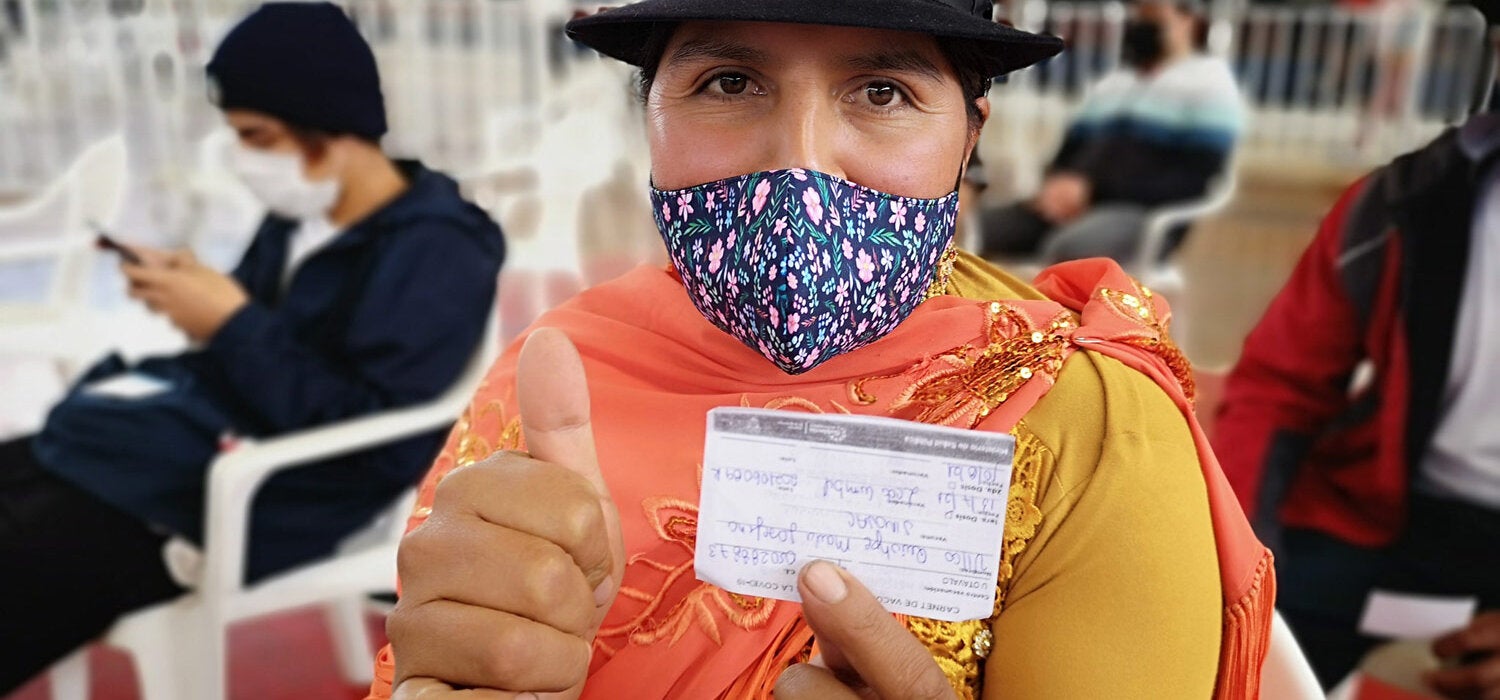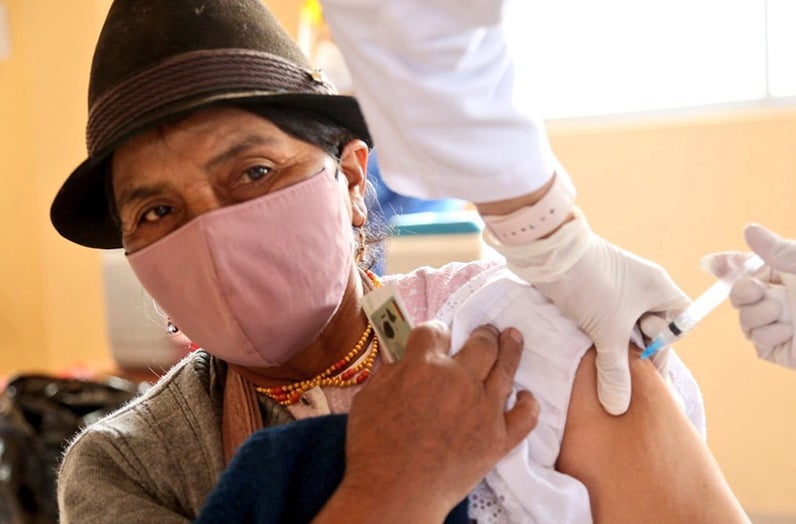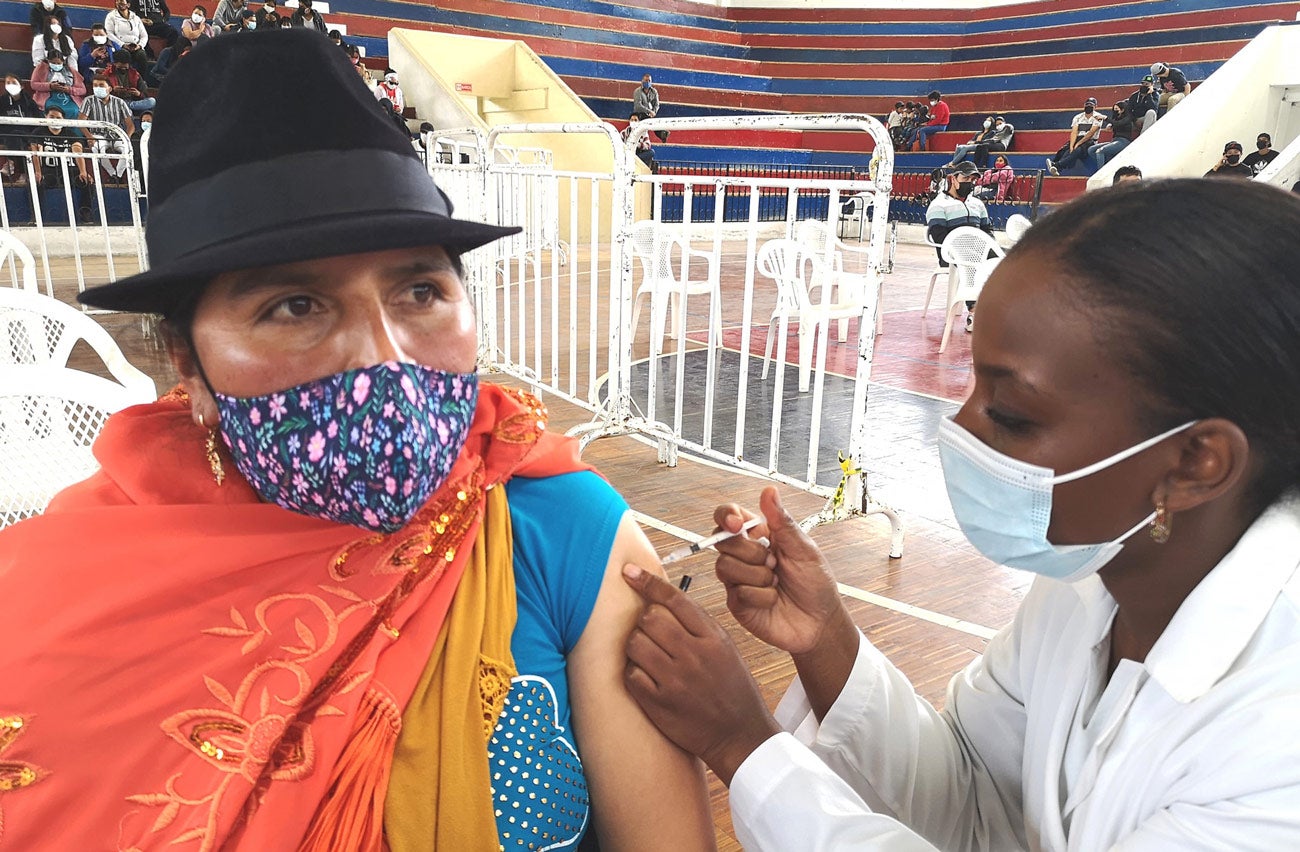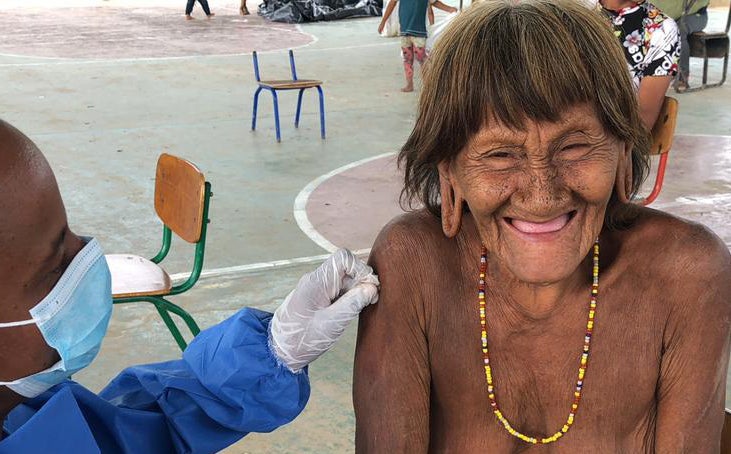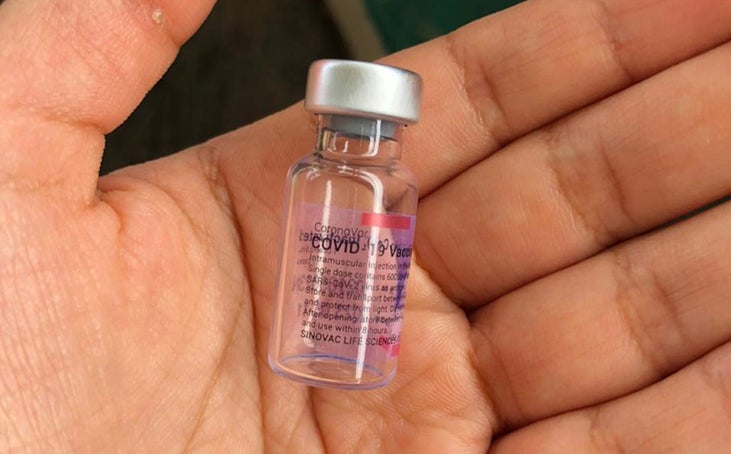August 9, 2021
"Vaccination to counter COVID-19 is very good. The vaccine does not present reactions or, if it does, they are not strong, it does not cause any disease. Come and get vaccinated, this vaccine helps us a lot," says Anabel Motalvo, assistant director at the University of Otavalo, Ecuador, in the Kichwa language.
Anabel's testimony is one of many that form part of a campaign by Ecuador's Ministry of Public Health (MSP) to promote vaccination and guarantee equitable access to the vaccine against COVID-19 for indigenous peoples and nationalities, Afro-Ecuadorians and Montubios, to reduce mortality and serious morbidity from this disease among them.
Based on a series of dialogues that gathered the concerns or myths of these communities about the COVID-19 vaccine, several communication strategies adapted to the different contexts were proposed, with total and absolute respect for the autonomy and knowledge systems of each community," according to the MSP.
According to official data, on July 1, the country started the vaccination with people of the Waorani nationality, in the Intangible Zone Tagaeri Taromenane, in the province of Orellana, something that continued ten days later with a massive vaccination campaign of indigenous peoples and nationalities of the communities of San Antonio, San Pablito de Agualongo, San Vicente Alto, Chinchinloma and Rumiñahui.
Alfonso Morales, indigenous leader, says in another of the campaign videos that "the program of the Ministry of Health and the national government have free vaccines that do not have an economic cost and for this reason they are currently vaccinating in the hospital of Cotacachi.". Addressing the members of his community and in his native language, Alfonso asks: "please come to receive the vaccine, especially adults and older adults."
María Andrango, an artisan merchant, also lent her voice and image to raise awareness about the importance of vaccination after going to get vaccinated with her mother and grandmother.
I am very happy to have agreed to the vaccination because my grandmother is 81 years old and through the vaccine she can live longer, so I invite all families, seniors, to approach the vaccine without fear because it does not cause us any harm".
The misinformation and myths that circulate around vaccines have also been addressed. Bladimir Pizando, representative of the youth of the Kichwa nationality of Napo, states in another of the videos that "there is no proven anti-fertility effect of the vaccines," and stresses that "the benefits of getting vaccinated reduce the risks of contracting a serious disease from COVID-19."
After receiving the vaccine, midwife Rosa Patajala, from the community of San Jacinto-Colta, states that she is going to tell her community about it and that the vaccine was not painful. "Come all of you to get vaccinated," Rosa invites with her mask on and a smile in her eyes.
PAHO has provided support to the Ministry of Health of Ecuador for the development of the National Vaccination Plan against COVID-19 and the deployment for its execution. In addition, it has worked on the development of operational guidelines for vaccination in peoples and nationalities, with the objective of guaranteeing inoculation of indigenous, Afro-Ecuadorian and Montubio communities in areas with difficult access to health facilities. PAHO has also developed communication and logistics strategies, in which community leaders or promoters have participated, so that communities receive information about vaccines and can make informed decisions.

